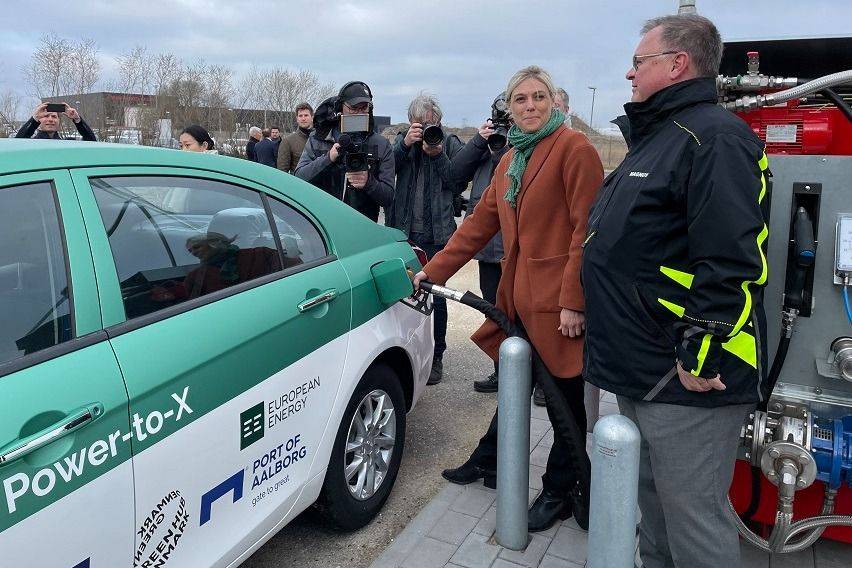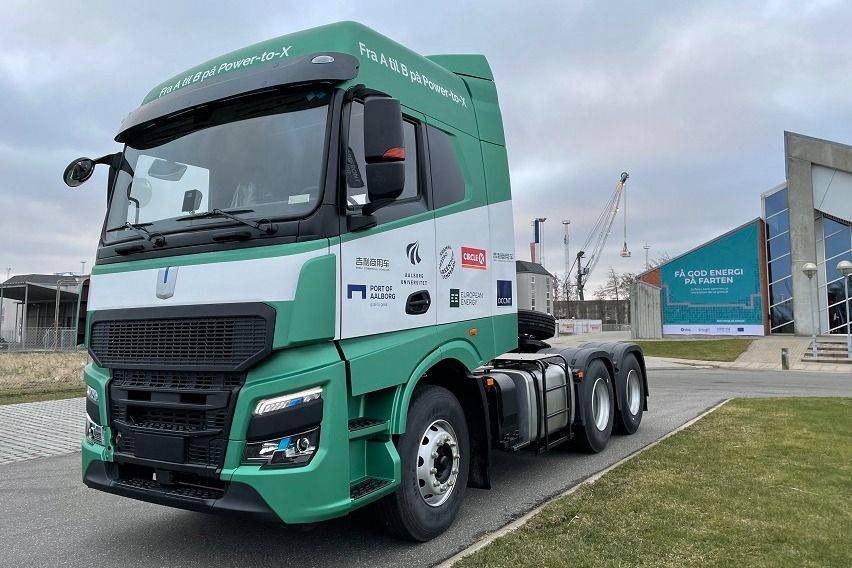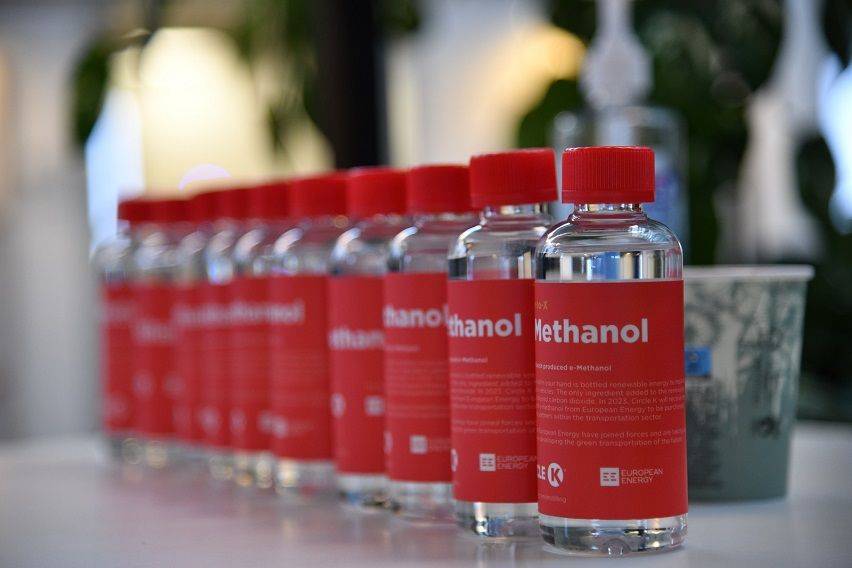
Zhejiang Geely Holding Group (ZGH) has announced its collaboration with Circle K Denmark, Aalborg University, and Fonden Green Hub Denmark for a 15-month test and demonstration trial for green e-methanol fuel and methanol use on vehicles in Denmark.
In a statement, ZGH said that the project was “in support of the Danish initiative to promote the production and development of green e-methanol.”
For the aforementioned alliance, the Chinese automotive manufacturer provided a pair of Geely Emgrand and a Farizon M100 heavy truck to its Danish partners as part of the long-term trial.

Danish Minister for Transport Trine Bramsen, Aalborg municipal government representatives, and European media graced the initial test of Geely vehicles using methanol on Danish roads and visited the e-methanol production facility at Aalborg University.
According to ZGH, the demonstration trial “will support the promotion of green e-methanol and green mobility as well as preparations for the safe introduction of e-methanol fuel in Europe.
The same statement noted that Denmark, despite being one of the world’s largest producers of wind and solar renewable energy, faces the issue of renewable energy being weather-dependent and prone to fluctuation. “Through Power to X (PTX), the conversion of renewable energy to other usable forms, green e-methanol is an optimal solution for Denmark to store excess renewable power, stabilize its national power grid, and produce a sustainable carbon neutral renewable fuel,” Geely shared.

On the other hand, Geely Holding is said to be the largest developer and producer of methanol vehicles in the world. Its ethanol-powered Geely Emgrand sedan and Farizon M100 heavy truck have already been tested and passed the stringent “China VI” emissions standards.
The company has been developing methanol vehicles and green methanol technologies for over 17 years, has launched more than 20 methanol vehicles, and obtained more than 256 patents for methanol technologies.
Further, previous demonstration trials of Geely Emgrand methanol sedans conducted in Iceland achieved an average well to wheel emissions of 46 grams of carbon dioxide per kilometer, which is even lower than electric vehicles in many countries.

Moreover, ZGH said that in the future, its methanol-power models will undergo European Union certification and promotion to other European markets to accelerate the carbon neutrality goal.
“In the race to reach carbon neutrality, methanol and electric vehicles are two powerful tools in the toolshed. Both have their own advantages and together complement each other. Green methanol is available now, methanol infrastructure can be built quickly at a minimal cost, and using green e-methanol can immediately reduce carbon emissions," ZGH said.
"Fighting climate change is a responsibility for all and Geely Holding supports green e-methanol as much as it does pure electric mobility,” the company concluded.
Photos from Zhejiang Geely Holding Group
Also read:
Copyright © Carmudi 2014-2025. All Rights Reserved.